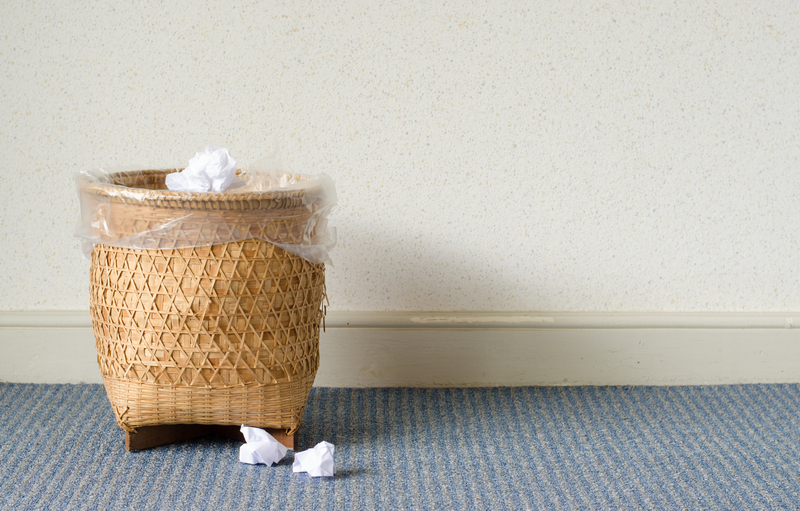Good Outcomes of Recycling
Posted on 22/01/2025
Recycling has emerged as a critical practice in sustainable development, aiming to reduce waste and preserve natural resources. From mitigating environmental pollution to fostering economic growth, the good outcomes of recycling are manifold and profound. By understanding and leveraging these benefits, societies can transform their waste management processes to create a healthier planet and a robust economy.
Environmental Benefits
One of the most significant advantages of recycling is its positive impact on the environment. Landfills and incinerators, traditional methods of waste disposal, contribute to soil contamination, air pollution, and greenhouse gas emissions. Conversely, recycling helps mitigate these detrimental effects by reducing the amount of waste sent to landfills and incinerators.
Firstly, recycling saves energy. Manufacturing products from recycled materials often requires less energy compared to producing them from raw materials. For instance, recycling aluminum saves up to 95% of the energy needed to make new aluminum from bauxite ore. Likewise, recycling paper saves 60-70% energy compared to making new paper from virgin pulp. This reduction in energy consumption translates to fewer fossil fuels burned, leading to lower carbon dioxide and greenhouse gas emissions.
Secondly, recycling conserves natural resources. By reprocessing used materials into new products, we reduce the need to extract, process, and refine raw materials. This conservation is particularly vital for non-renewable resources such as minerals and fossil fuels. For example, recycling one ton of steel conserves 2,500 pounds of iron ore, 1,400 pounds of coal, and 120 pounds of limestone. Similarly, recycling glass saves raw materials such as sand, soda ash, and limestone.

Economic Advantages
Recycling is not just an environmental boon; it also offers substantial economic benefits. The recycling industry significantly contributes to job creation and economic development. In the United States alone, the recycling industry employs over 1.1 million people, generating an annual payroll of nearly $37 billion and producing $236 billion in annual revenue.
Additionally, recycling helps cities and municipalities cut costs associated with waste management. Landfills are expensive to construct and maintain, not to mention the long-term environmental remediation costs. By diverting waste from landfills through recycling programs, local governments can lower these expenses and allocate funds to other critical public services.
Furthermore, recycling stimulates innovation and growth in the manufacturing sector. By creating demand for recycled materials, the industry encourages the development of new technologies and processes for material recovery and product design. Companies that incorporate recycled materials into their supply chains can reduce production costs, improve sustainability profiles, and meet consumer demand for environmentally responsible products.
Health and Community Well-being
Recycling also has profound implications for public health and community well-being. Improper waste disposal can lead to the contamination of air, water, and soil, posing severe risks to human health. For instance, the release of toxic substances from electronic waste can pollute water sources and expose communities to hazardous chemicals.
By promoting proper waste management and recycling, communities can reduce pollution and minimize health hazards. This practice ensures cleaner air and water, leading to healthier living conditions. In developing countries, where waste management infrastructure may be inadequate, recycling initiatives can play a crucial role in improving public health outcomes.
Moreover, recycling fosters a sense of community engagement and civic responsibility. Many recycling programs involve community participation and education, encouraging residents to take active roles in waste reduction efforts. This collective involvement can strengthen community bonds and promote a culture of sustainability.
Reducing Carbon Footprint
The fight against climate change has never been more critical, and recycling plays a vital role in reducing our carbon footprint. Recycling materials generally requires less energy than producing new materials from scratch, resulting in lower emissions of carbon dioxide and other greenhouse gases. For example, recycling plastic can reduce carbon emissions by 30-70% compared to creating new plastic from virgin materials.
Additionally, the diversion of organic waste such as food scraps and yard trimmings from landfills to composting programs can significantly reduce methane emissions. Methane is a potent greenhouse gas with a global warming potential 25 times greater than carbon dioxide over a 100-year period. By composting organic waste, we can reduce methane emissions and return valuable nutrients to the soil, promoting healthier ecosystems.
Resource Efficiency and Circular Economy
Recycling is a cornerstone of the circular economy--a regenerative system aimed at minimizing waste, making the most of resources, and extending the lifecycle of products. In a circular economy, materials flow in closed loops, reducing the extraction of virgin resources and the generation of waste. This shift from a linear "take-make-dispose" model to a circular approach promotes resource efficiency and sustainability.
For example, the recycling of electronic waste (e-waste) allows valuable metals such as gold, silver, and copper to be recovered and reused, reducing the need for mining and its associated environmental impacts. Similarly, recycling textiles can reduce water consumption and pollution from the fashion industry, one of the most resource-intensive sectors.
By adopting circular economy principles, businesses can enhance their competitiveness, resilience, and sustainability. Consumers also benefit from access to more sustainable products and services, contributing to a more responsible and conscious society.

Challenges and Future Directions
Despite the numerous benefits, recycling faces several challenges that need to be addressed to maximize its positive outcomes. Contamination of recyclable materials, inadequate infrastructure, and market fluctuations for recycled commodities can hinder the effectiveness of recycling programs. Additionally, public awareness and participation levels may vary, affecting the overall success of recycling initiatives.
To overcome these challenges, governments, businesses, and communities must work collaboratively to improve recycling systems and policies. Investing in advanced sorting and processing technologies can enhance the quality and efficiency of recycling. Educating the public about proper recycling practices and the importance of participation can also drive higher recycling rates.
Furthermore, policies that support the development of markets for recycled materials can provide stability and growth for the recycling industry. Extended producer responsibility (EPR) programs, which hold manufacturers accountable for the end-of-life management of their products, can incentivize the design of more recyclable products and the use of recycled content.
Conclusion
The good outcomes of recycling are vast and interwoven, encompassing environmental preservation, economic growth, public health, and community well-being. By reducing waste, conserving natural resources, creating jobs, and lowering greenhouse gas emissions, recycling offers a viable solution to some of the most pressing global challenges. Embracing recycling and advancing towards a circular economy can pave the way for a more sustainable and prosperous future, ensuring that the planet remains habitable and thriving for generations to come.

 020 3744 5712
020 3744 5712












